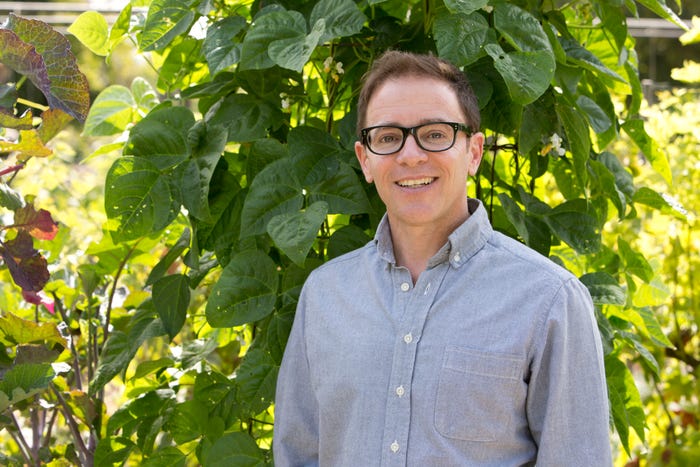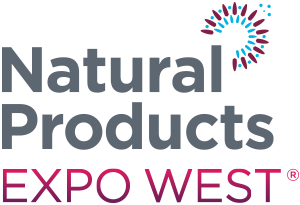
Sponsored Content
Food matters. Especially how it’s cultivated. It deeply impacts our natural resources and the health of people and their environment. Clif Bar, one of the nation’s leading organic food manufacturers and sponsor of the Natural Products Expo West 2017 Cultivating Organic conference track, recognizes this and strives to be a catalyst for change in creating a better food system for all. Organic is a bright spot in this system and what Clif Bar believes is at the root of a more just and sustainable food future.
We spoke briefly with Matthew Dillon, director of agricultural policy and programs, about why Clif Bar is sponsoring the Cultivating Organic track and why it is important for our industry to support a more robust organic supply chain.
What values set Clif Bar apart as a company?
Matthew Dillon: For Clif Bar, the value proposition of organic is not about following trends in sales but rather following the road map that Gary Erickson, our founder, laid out in creating a Five Aspiration company that works to sustain planet, community, people, brands, and business. Being a family and employee-owned company, we have a bit more freedom to bring our aspirations to life in long-term strategies and day-to-day decisions. There aren’t many companies at our scale that have this orientation and the ability to activate it.
Why does Clif Bar feel inspired to sponsor the Cultivating Organic Conference Track at Expo West?
MD: Our success as a food company is predicated on the success of organic farmers in our supply chain. These are farmers in more than 30 countries who are making significant efforts to grow crops in a way that enhances biodiversity, improves soil health and minimizes health risks for farm workers. We want to do everything we can in the way of federal policy, business practices and agricultural research investments so that these farm communities are successful in organic for the long term. We think OTA and New Hope have put together a great track that touches on each of these.
 Tell us more about Clif Bar’s commitment to endowing $10 million in organic agricultural research, and what value you see in that for food companies or consumers.
Tell us more about Clif Bar’s commitment to endowing $10 million in organic agricultural research, and what value you see in that for food companies or consumers.
MD: We, as food companies and consumers, benefit from public education and research every single day—we just don’t see it on our spreadsheets or home accounting. For more than 150 years, our nation’s public agricultural schools have been educating new entrepreneurs, scientists and citizens as well as developing improved understanding of agronomic sciences. They’ve taken some major hits to funding, and we feel a responsibility to give back so the next generation of farmers, food companies and consumers can continue to thrive.
When it comes to organic, investments in organic research and education are essential for the organic sector to continue to grow and provide opportunities for farmers in the United States and increased access to organic food for families.
Clif Bar & Company is working with industry partners to create a legacy commitment to future generations of organic agricultural researchers, students, farmers, and families who eat organic food. We’ve recently announced the nation’s first endowed chair in organic plant breeding and are committed to working with other like-minded companies to endow a total of five chairs at public universities.
The endowed chairs are university positions permanently paid for with the revenue from endowment investment funds. These endowments ensure scientific research and training of graduate students in organic agriculture in perpetuity. It puts a stake in the ground that organic is not a fad, but here to stay.
How does Clif Bar support organic infrastructure and new/established organic farmers in the U.S.? If someone asked you how to get involved in support of organic agriculture, what would you tell them?
MD: I’d tell them there is no single solution. If you want to improve organic—farms, market stability, processing capacity, quality and efficiency—then you need to invest in the following areas (which gets to your first question on what Clif is doing):
· Talk to your farmers and farmers interested in producing for you and find out what they really need to be successful in the long run. There’s a lot of media talking about what farmers need, and they often talk to "experts," but what farmers need varies dramatically region to region, crop to crop, and by scale.
· Agricultural research, starting with plant breeding, is absolutely necessary to have continued improvement. Organic agriculture has room to improve on our sustainability and yields. There’s a time for companies to compete and a time to collaborate. When it comes to agricultural research, collaboration is key. We’re too small of a sector to run our own research programs.
· Look for opportunities to develop long-term contracts and relationships that bring stability to farmers, especially during transition from conventional to organic. We’ve done that with a 10-year agreement with our California fig farmers.
· Policy matters. Build your case for the value of organic and share it with state and federal representatives, no matter their political party. Go in with what you add in value, not negative attacks. The organic community has spent too much time, resources and political cache in fighting what we don’t like in conventional farming and food, and not enough energy on telling our value as a sector to policy makers.
 Check out the Cultivating Organic track at Expo West 2017 to learn more. Upgrade your pass to a Super Pass today!
Check out the Cultivating Organic track at Expo West 2017 to learn more. Upgrade your pass to a Super Pass today!
About the Author
You May Also Like






